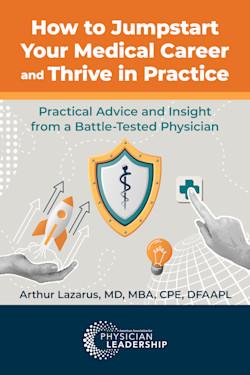Summary:
Physician coaching helps doctors combat burnout, stress, and emotional exhaustion by fostering resilience, self-compassion, and work-life balance. Combined with peer-support groups, it offers a safe space for growth and healing, helping physicians rediscover joy in medicine.
Doctors guided by professional physician coaches usually emerge healthier and happier practitioners.
The demands of modern medicine are relentless. Physicians across the spectrum, from medical students to seasoned attendings, face escalating pressures from administrative overload to the emotional toll of patient care. Addressing these challenges requires targeted, evidence-based interventions designed by those who truly understand the unique struggles of the profession. This is where coaching by doctors for doctors becomes a vital lifeline.
The Power of Physician Coaching
A host of literature underscores the effectiveness of physician coaching in combating emotional exhaustion, impostor syndrome, stress, and burnout. Beyond reducing these pervasive challenges, coaching fosters resilience, self-compassion, and a greater sense of well-being.
Emerging evidence continues to highlight the major impact of coaching programs tailored specifically for overburdened physicians and doctors-in-training. Doctor-led coaching offers an unparalleled depth of understanding. Physicians who have “walked the corridors” and “worn the scrubs” bring unique insights and empathy to their coaching relationships. These MD and DO coaches have faced the challenges of medicine and emerged stronger, equipped to guide others along the same path.
A Lifespan Approach to Coaching
Coaching programs for physicians are designed to address needs across all stages of a medical career. Medical students benefit from support in developing a growth mindset, navigating critical feedback, and managing the transition into clinical practice. Residents gain tools to manage impostor syndrome, perfectionism, and the grueling demands of postgraduate training.
Attendings and medical leaders receive guidance in setting boundaries, structuring work-life balance, and building healthy relationships while addressing the unique pressures of leadership roles. Pre-retirement physicians explore ways to find meaning and navigate the emotional aftermath of stepping away from practice.
Coaching provides a safe, doctor-only space, free from the oversight of employers or training institutions, to tackle these challenges head-on. These confidential environments allow physicians to speak openly about their struggles without fear of judgment or professional repercussions. Physicians who receive coaching are considered clients, not patients, and there is no formation of a doctor-patient relationship or duty to disclose.
Transformational Topics
Physician coaching focuses on areas often neglected in traditional medical education and training. Programs may include cognitive and positive psychology techniques to reframe challenges, strategies for managing bullying, harassment, and litigation stress, and tools to promote mental health awareness and reduce suicide risk.
Coaching also addresses practices for maintaining work-life balance and developing healthy relationships. These interventions not only address immediate concerns but also cultivate long-term resilience and career satisfaction.
The Role of Peer-Support Groups
Alongside one-on-one coaching, anonymous peer-support groups provide another crucial resource. These confidential spaces — often virtual — foster connections among healthcare practitioners who share similar struggles. Participants engage in candid, stigma-free discussions, supported by peers who understand their pain without needing to know their names. The ethos of these groups, summarized in the mantra “No name, no shame,” creates a safe haven for physicians to share their burdens.
Regular participation in peer-support groups reduces isolation, builds relationships, and models positive coping behaviors. Over time, these groups develop into cohesive, self-sustaining communities that provide enduring support through shared challenges.
The Immediate Implications of Burnout
While coaching is a powerful tool, it does not address all the issues underlying physician burnout. These challenges include overwhelming workloads, chaotic work environments, administrative burdens, and declining autonomy. The transition to electronic medical records has added to physicians’ frustrations, creating barriers to patient care and collaboration. System-wide reform, including reducing administrative burdens, promoting work-life balance, and implementing tort reform, is essential to address the root causes of burnout.
However, these changes will take time, and coaches are limited in their ability to remediate workplace issues. In the meantime, physicians are left to navigate a toxic system that often drives them to mental illness, addiction, and even early death. Coaching provides a critical means of survival and a pathway to rediscovering joy and meaning in medicine, but coaches can’t fix broken systems.
Rediscovering Joy in Medicine
Still, the combination of coaching and peer support may empower physicians to overcome burnout, embrace self-compassion, and thrive. Doctor coaches, many of whom have their own stories of overcoming adversity, offer hope and guidance. Their personal experiences lend authenticity to their coaching as they model resilience and growth. For healthcare practitioners struggling under the weight of burnout and related challenges, reaching out to a doctor coach can be life-changing. Coaching offers a confidential, stigma-free opportunity to heal and grow, restoring the humanity that lies at the heart of medicine.
Excerpted from How to Jumpstart Your Medical Career and Thrive in Practice: Practical Advice and Insight from a Battle-Tested Physician by Arthur Lazarus, MD, MBA, CPE, DFAAPL.
Topics
Strategic Perspective
Self-Control
Influence
Related
How to Make a Seemingly Impossible Leadership DecisionRedefining Physician Leadership: A Comparative Review of Traditional and Emerging Competencies and DomainsUnlocking Leadership Potential: The Power of Executive Coaching with Vivek IyerRecommended Reading
Problem Solving
How to Make a Seemingly Impossible Leadership Decision
Problem Solving
Redefining Physician Leadership: A Comparative Review of Traditional and Emerging Competencies and Domains
Self-Management
Succeeding as an Outsider in a Legacy Culture
Professional Capabilities
Championing Physician Leadership Development: AAPL's Five-Decade Commitment Meets Healthcare's Critical Moment
Professional Capabilities
“Profiles in Success”: Certified Physician Executives Share the Value and ROI of their CPE Education



